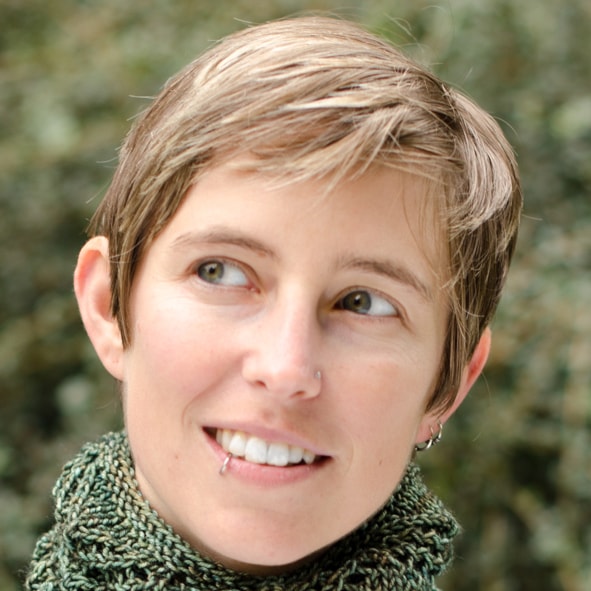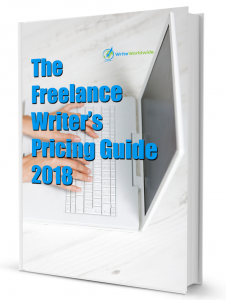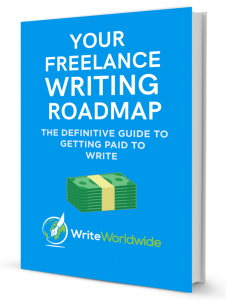Today’s exclusive WriteWorldwide interview is with Jessie Kwak, a pro freelance writer living in Portland, Oregon. Read on for Jessie’s insights into leveraging your writing samples, networking with potential clients, habits and systems for freelance writing success, and much more!
1) Hi Jessie, please tell us a little about yourself and your website.
I wear a few different hats as a writer. My primary job is as a freelance B2B marketing copywriter, where I work for a lot of SaaS brands doing blogging, white papers, and ebooks. I also work as a ghostwriter/content marketing consultant for coaches and authors. And in my spare time, I write and publish science fiction novels.
It’s tough to balance all three, but the interplay between them is fun. I’m basically telling epic stories — whether that’s for a brand that’s doing good work, for a coach with amazing ideas, or in order to entertain my sci-fi readers. But it also requires me to maintain three loosely-linked web presences, which admittedly goes on the back burner.
2) Did you grow up wanting to be a writer? And how did you break into the industry?
Yes! My first novel was written long-hand when I was in middle school. It filled two spiral-bound notebooks. I wrote more novels and dabbled in journalism in high school, then got an English degree at Seattle Pacific University. From there I continued writing fiction, but eventually decided I was ready to find some actual paying writing work.
I was waiting tables when I made this decision, so I started chatting with one of our regulars. She’d worked as a copywriter for several big local companies and offered to help me break in. With her help polishing my resume and interview skills, I landed a job with a children’s catalog company as a copywriter. I loved the work but hated sitting in an office all day! So I eventually worked my way over to freelancing.
I had to wait tables again after I quit the full time gig, but only for a few months. I’ve been freelancing full-time now for over four years.
3) How long after deciding on this career did you establish yourself as a full-time writer?
It took me about 6 months to land the first full-time job, and about 18 months after I knew I wanted to freelance before I was pulling in a full-time wage. I would have ramped up faster as a freelancer if I hadn’t been trying to work at two restaurants at the same time, but I hadn’t saved up enough of a nest egg before I quit my day job.
4) What’s your opinion on the subject of choosing a writing niche?
My niche kind of chose me. Because I started out as a generalist with no real industry experience to draw on, I took anything that would come my way. The better paying gigs tended to be in the B2B space, and I found that I liked that better than B2C anyway.
With each clip I added to my portfolio, I’d think of creative ways to spin it. I landed an early gig blogging for restaurant owners, on the basis of my background in the restaurant business.
I used those clips to demonstrate that I could A) blog, B) write for B2B and C) write about POS technology. I eventually spun that into gigs blogging for several POS companies, which I used to get gigs with other software-as-a-service (SaaS) companies.
And then one day I woke up and all my clients were well-paying B2B SaaS companies. A year earlier I wouldn’t have even known what that meant.
5) Winning new clients is always a hot topic on the WriteWorldwide blog. What’s the most effective prospecting method you’ve used to find new work?
My best inbound clients have all come from articles I’ve written — either on their competitors’ blogs, or on industry sites. I highly recommend guest posting for inbound leads.
As for prospecting, it’s a tough game because you have to catch people at the exact moment they’re looking for help. I haven’t had much luck with reaching out directly to clients, but I have a great success rate with networking. Both attending networking events, and reaching out to connect with people indirectly online.
You never know when seeds you plant networking might bear fruit.
6) What do you wish you’d known at the start of your freelance writing career?
I wish I’d raised my rates faster. Actually, I’m still too tentative about raising my rates — it’s a constant struggle for me to charge what I’m worth.
7) Name one book, one tool, and one article that have helped you in your writing career.
Book: Mindset by Carol Dweck
Tool: LinkedIn
Article: This was so hard! But probably this podcast with Ed Gandia and Jennie Mustafa-Julock (maybe cheating, but I mostly listen to podcasts rather than reading articles!)
8) Keeping motivated can be tough for many freelance writers. How do you keep yourself motivated and productive as a writer?
I’m a big believer in ditching willpower and motivation and relying on habits and systems instead. I have a lot of systems in place that guide me through getting the work done — no matter if I’m feeling it or not. Probably the biggest thing I do is schedule my weeks out every Sunday, and schedule my individual days out the evening before.
I’m really obsessed with productivity for creative workers. If you’ll permit me a little plug, I have a weekly newsletter I send out called the Monday Morning Blast-Off — you can sign up on my blog, here. Each week I offer one simple tip to help readers be more productive and creative in their week ahead.
9) Who are your biggest influences and people you admire in the freelance writing industry?
Starting out, I was a member of the Freelance Writer’s Den, so I learned a ton from Carol Tice, Linda Formichelli and the regulars there. I now listen religiously to Ed Gandia’s B2B Launcher podcast, and Brian Clark’s Unemployable podcast. And I adore Amy Harrison’s writing style — she always makes me laugh.
10) What does the future hold for you – are you involved in any writing projects other than freelancing?
My biggest non-freelancing project at the moment is a book on productivity for creative people, called Chaos to Creativity. It’s due to my editor at Microcosm Press soon, and should be out in 2018 sometime.
My second biggest project is a humorous short story collection called Business as Usual: Corporate Communications in the Zombie Apocalypse. Each story is written as a company-wide memo, email chain, webinar script, etc — all as though companies are trying to keep it together while the zombie apocalypse is taking place.
I’m self-publishing that one in the next month or so. It’s written, and I’m just waiting on final cover art and editing before it’s ready to go!
We hope you enjoyed today’s interview as much as we did! To find out more about Jessie, head on over to her website.



